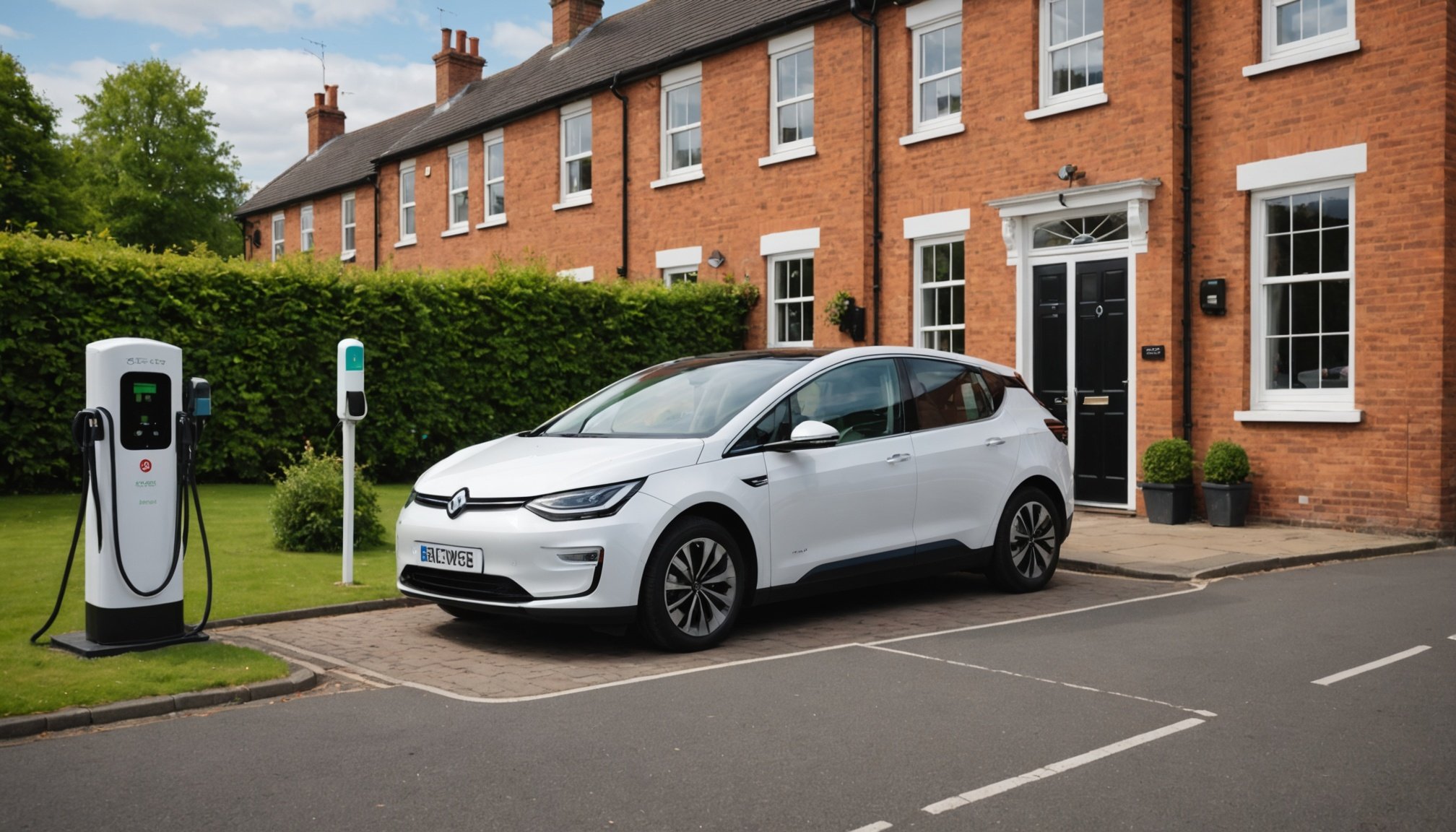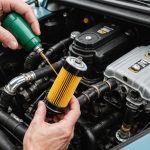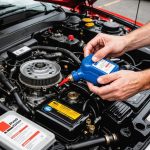Understanding Electric Vehicle Charging Stations
Advancements in electric vehicle charging technology have paved the way for more efficient home charging stations, making EVs more accessible. Home charging stations are typically classified into three types: Level 1, Level 2, and DC Fast Chargers. Level 1 chargers use standard household outlets, offering slower charging speeds but are convenient and affordable. In contrast, Level 2 chargers require special installations but deliver faster charging times. DC Fast Chargers are usually reserved for commercial use due to their higher power requirements.
Complying with EV regulations is imperative when setting up a home charging system. Homeowners must ensure their charging stations meet local regulations to avoid potential legal issues. Compliance not only secures the legal operation of these stations but also guarantees safety and efficiency.
Also to read : Unlock your savings: the ultimate guide to utilizing uk park and ride solutions for cost-effective city commuting
These regulations also protect the grid infrastructure and ensure safety standards. It is advisable to consult with professionals during installation to align with all compliance requirements. An ill-fitted charging station could lead to electrical risk or infrastructure damage.
By navigating local regulations and selecting the right charging solution, electric vehicle owners can enjoy their benefits without hassle. This step is crucial for maximising the convenience and efficiency of home charging stations.
Topic to read : Comprehensive handbook for securely transporting your bicycle by car: legal insights for the uk
UK Regulations for Home EV Charging Stations
Navigating UK EV charging regulations is essential for homeowners installing EV charging stations. These regulations ensure that installations are safe, efficient, and comply with local and national standards.
Overview of Relevant Legislation
Compliance with key legislation includes adhering to government guidelines and standards. A critical piece of legislation is Part P of the Building Regulations 2010, which governs electrical safety in dwellings. These electrical standards ensure that home EV installations are conducted safely and prevent electrical hazards.
Compliance with the IET Wiring Regulations
The IET Wiring Regulations, also known as BS 7671, play a vital role in guiding electrical installations. This standard ensures that installations support the grid’s infrastructure and prevent electrical failures. Compliance with these regulations is mandatory for the integration of EV charging stations at home.
Planning Permissions and Notification Requirements
When considering home installations, planning permission might be necessary, especially if modifications to the exterior of a building are required. Familiarising oneself with notification requirements ensures that all steps are legal and acknowledged by local authorities. This reduces the risk of fines or having to alter completed work. Proper adherence to these regulations ensures a smooth and lawful installation process.
Step-by-Step Installation Process
Setting up an EV charger installation at home involves careful planning and execution. Here’s a concise step-by-step guide to facilitate a smooth home setup.
Preparing for Installation
Begin with a comprehensive site assessment and electrical checks. This ensures the existing infrastructure supports the anticipated electrical load. Consider your daily usage as it will influence the charger’s capacity needs.
Selecting an Appropriate Location
Choose an optimal location within easy reach of the vehicle while adhering to EV regulations. This might mean installing the charger near the driveway or garage, ensuring you have a safe and convenient connection.
Detailed Installation Steps
- Set up the Charger: Follow the manufacturer’s instructions, ensuring all components are connected correctly.
- Run Electrical Connections: Verify that all wiring is secure and up to standard, adhering to compliance requirements.
- Test the System: Conduct a thorough functionality check once setup is complete. This ensures everything operates safely and efficiently.
Keep in mind the importance of professional installation to adhere to electrical standards and regulations, ensuring a safe and effective charging experience.
Recommended EV Charger Equipment
Electric vehicle charging at home doesn’t have to be perplexing. Choosing the best EV chargers involves considering charger specifications and product comparisons to select the optimal device for your needs. Here’s a rundown to help make an educated choice.
Comparing Different EV Charger Models
Not all chargers are the same; they vary in power output, charging speed, and smart features. Level 2 chargers, for instance, offer faster charging than Level 1 and are more suited for daily use in home settings. They sometimes include Wi-Fi connectivity for remote access and monitoring.
Features to Look For in a Home Charger
Key attributes to evaluate include the charging speed, compatibility with different EV models, and energy efficiency. Smart features like app controls can enhance user convenience, allowing users to monitor charging sessions or even schedule them to benefit from lower electricity rates during off-peak hours.
Recommended Brands and Models in the UK
The UK market boasts respected brands like Rolec and Pod Point, known for reliability and comprehensive features. When comparing models, explore user reviews and ratings to gauge real-world performance and durability. Equipping yourself with the right knowledge ensures a fulfilling and efficient home charging experience.
Potential Costs Involved
When considering the switch to electric vehicle charging at home, understanding the EV charger installation cost is essential for proper budgeting. Costs can be broken down into three main components: the charger itself, installation, and ongoing maintenance.
Breakdown of Costs
-
Charger: Price varies based on features such as charging speed and connectivity options. Smart chargers with additional functionalities tend to be more expensive.
-
Installation: Fees depend on the complexity of the site and required electrical upgrades. Hiring a certified installer ensures compliance with EV regulations and electrical standards.
-
Maintenance: Regular maintenance is relatively low but necessary to ensure long-term functionality and safety.
Factors Influencing Cost
Various elements affect the overall price, including the type of charger, location specifics, and any modifications to the home’s electrical system. It is worth consulting with a professional to get an accurate estimate tailored to your specific needs.
Financial Incentives and Grants
In the UK, several financial incentives and grants are available to offset these costs. Exploring these options can significantly reduce the financial burden associated with transitioning to a home charging station. Understanding the incentives available will allow for more informed financial planning.
Safety Tips for Home EV Charging
Ensuring EV charging safety is essential when setting up home charging stations. This encompasses not only the installation safety measures taken during setup but also ongoing user safety practices.
Importance of Professional Installation
Hiring certified electricians for EV charger installations is vital to guarantee compliance with electrical standards. Professional installers have the expertise to navigate complex wiring requirements, preventing potential hazards. They ensure that all connections are secure and systems are correctly grounded, thus safeguarding against electrical faults.
Safety Devices and Standards
Incorporating safety devices like Residual Current Devices (RCDs) and circuit breakers is critical. These components are designed to promptly disconnect the power supply in the event of a fault, minimising risks of electric shock or fire. Adhering to recognised safety standards further ensures a secure charging environment, protecting both the infrastructure and the users.
Regular Maintenance and Safety Checks
Routine maintenance keeps your EV charging setup functioning optimally. Regular checks can identify wear and tear early, avoiding potential malfunctions. It’s advisable to inspect cables for damages and test the RCDs periodically. When in doubt, seek professional help to address any safety concerns, maintaining a safe and reliable charging experience.
Maintenance and Troubleshooting
Regular EV charger maintenance is crucial to ensure consistent performance and safety. Start by inspecting the charging station’s cables and connectors for any visible damage. It’s essential to check for wear and tear, as damaged components can lead to inefficiencies and potential safety hazards. Regularly cleaning the station can prevent the build-up of debris that might affect the functionality.
If issues arise, identifying common charging problems swiftly can save time and stress. Common issues include slow charging rates or connectivity problems with the vehicle. Investigate these by checking the connections and ensuring they are secure. Additionally, review the charger’s settings and consult its manual for specific troubleshooting tips tailored to your model.
However, not all issues have straightforward solutions, and it’s wise to know when to seek professional help. Persistent issues such as frequent power trips or erratic charging behaviour warrant expert intervention. Professional electricians are trained to handle intricate EV charging systems, ensuring that all troubleshooting efforts comply with safety standards and resolve underlying issues effectively. Keeping the charger in prime condition not only prolongs its life but guarantees smoother and safer operation for your electric vehicle’s daily demands.
Additional Resources and Support
When it comes to EV charger resources, accessing the right information can make a significant difference. By navigating government guidelines, users can ensure compliance with every aspect of EV regulations. The UK government provides comprehensive documents that outline the standards and procedures for setting up home charging stations, ensuring installations are both safe and efficient.
Finding Certified Installers
Finding trusted professionals for your EV charger installation is crucial. Certified installers have the necessary skills and understanding of electrical standards to ensure a seamless setup. Many directories list qualified installers, helping homeowners connect with experts who are well-versed in the intricacies of home charging systems.
FAQs and Community Support
Frequently Asked Questions (FAQs) are a valuable resource for addressing common concerns around home charging stations. They provide quick answers, which can be especially beneficial for troubleshooting minor issues independently. Furthermore, joining community forums offers an opportunity to share experiences, gain insights, and receive direct advice from fellow electric vehicle owners who have navigated similar challenges. Engaging with these platforms can enhance understanding and facilitate smoother EV charging experiences.











